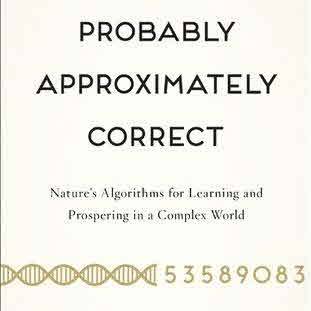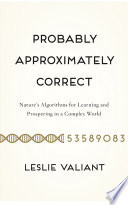
This is a discussion of the idea and applications of a machine learning model. Valiant argues that PAC can be generalized to study human learning, cognitive development, and biological evolution. Alas, the discussion is not on a popular level and I did not always follow his arguments, nor could I judge their validity. But to the extent I could, I found it a useful grounding for thinking about how we got here & how we keep going.
35 likes1 stack add


















